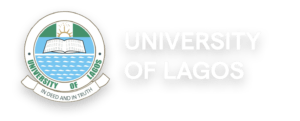The Chairman, Presidential Committee on Fiscal Policy and Tax Reforms, Mr. Tayo Oyedele has underscored the importance of collaborative efforts by the government, private sector, civil society, and academia, to achieve meaningful fiscal monetary reforms.
He made this call while delivering the keynote address at the Policy Dialogue on the Current Fiscal Monetary Reform in Nigeria – Walking the Talk organized by the Centre for Business Law and Policy (CBLP), University of Lagos (UNILAG) on Tuesday, November 9, 2023.

The occupier of the Professorial Chair endowed by Lagos State in UNILAG on Taxation & Fiscal Matters, Professor Abiola Sanni, SAN served as moderator while the Director of the Centre for Business Law and Policy, UNILAG, Professor Joe Abugu, SAN was the host of the event.


Held at the Faculty of Law Lecture Theatre, UNILAG, the dialogue gave participants the opportunity to engage in robust discussions on topics such as tax reforms, budgetary allocations, monetary policies, and their impact on economic growth and development. The array of participants comprised government officials, faculty members, legal practitioners, economists, researchers, and students.
With his extensive experience and expertise in the field, Mr. Oyedele delivered a thought-provoking address on Nigeria’s current fiscal monetary reform and significant strides in implementing fiscal policies and tax reforms.
According to him, “these reforms are aimed at fostering economic stability and growth. It is imperative that we enhance our revenue mobilization efforts by broadening the tax base, improving tax compliance, and reducing leakages. Simultaneously, we must ensure prudent management of public funds through effective budgeting, expenditure control, and transparency’’.
The Keynote Speaker opined that achieving balance between revenue generation and expenditure management remained a key aspect of fiscal monetary reform. He stressed the need for all stakeholders to develop evidence-based recommendations to drive policies that address the challenges faced by Nigeria’s economy.


Other panelists at the hybrid event also shared their insights, experiences, and recommendations. The Panelists included Director, Centre for Economic Policy Analysis and Research, UNILAG, Professor Ndubusi Nwokoma; the Dean of Faculty of Law, Professor Ige Bolodeoku; Dr. Isaac Nwogwugwu of Department of Economics, UNILAG; Dr. Peter Amah of Department of Finance, UNILAG; former Director General, West African Monetary Institute (WAMI), Professor Ngozi Egbuna who spoke online; and Chief Executive Officer (CEO) of Economic Associates, Dr. Ayo Teriba.

Professor Ndubusi Nwokoma’s perspective on the topic focused on the need for the adoption of a strategy to push diversification and promotion of non-oil sectors such as agriculture, manufacturing, services, and technology.
While commending government’s efforts to implement reforms along this line, he added that “Nigeria can build a more resilient and inclusive economy that is less vulnerable to external shocks if it will do away with its heavy reliance on oil revenues as this is the only route to shape Nigeria’s economic landscape”.
The standpoint of the Dean, Faculty of Law, Professor Ige Bolodeoku at the event alluded to the thoughts of the keynote speaker. He observed that Nigeria’s monetary policy framework is rife and aim to address economic challenges, promote diversification, enhance revenue generation, improve public financial management, and ensure macroeconomic stability.
According to him, “we must strive for a balanced approach that promotes inclusive growth, supports small and medium-sized enterprises, encourages investment, and fosters job creation. By aligning our fiscal policies with the needs of different sectors, we can create an enabling environment for sustainable economic development”.
In his remarks, the Chief Executive Officer (CEO) of Economic Associates, Dr. Ayo Teriba noted that the current leadership in Nigeria understands the importance of a sound fiscal policy environment and an effective taxation system for the functioning of the government and the economy.
While decrying the poor ranking of Nigeria in the area of global ease of paying taxes, Dr. Teriba outlined the key challenges in the country’s tax system. These include: multiple taxes and revenue collection agencies, fragmented and complex tax system, low tax morale, high prevalence of tax evasion, high cost of revenue administration, lack of coordination between fiscal and economic policies, and poor accountability in the utilization of tax revenue.

According to him, “Nigeria’s Tax to GDP ratio is one of the lowest in the world and well below the African average. This has led to an overreliance on borrowing to finance public spending which in turn limits the fiscal space as debt service costs consume a greater portion of government revenue, annually. This results in a vicious cycle of inadequate funding for socio-economic development. While some incremental progress has been recorded over the years, the outcomes have not been transformative enough to change the narrative”.



In her remarks, the Chairperson of the Dialogue and Deputy Vice-Chancellor (Development Services), Professor Ayodele Atsenuwa appreciated the organizers for a well-put-together policy dialogue. She emphasized that reforms by government play a crucial role in achieving macroeconomic stability, attracting foreign investment, and fostering sustainable economic growth.
She commended Nigerian government’s efforts in implementing various reform initiatives, and highlighted the need for effective coordination between fiscal and monetary authorities to ensure that policies are aligned and mutually reinforcing.
Professor Atsenuwa averred that these measures were essential to address economic challenges such as revenue generation, budget deficits, inflationary pressures, and exchange rate volatility.

